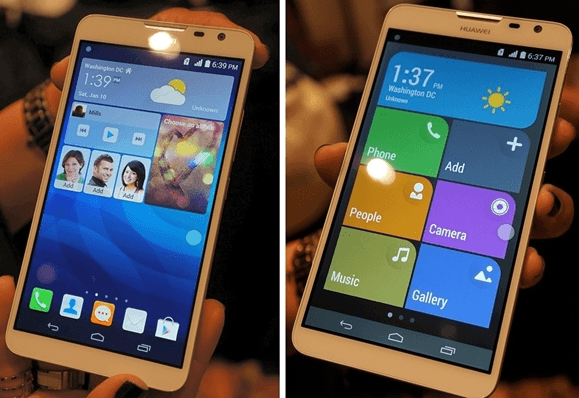 Kwenye hii picha hapa chini ni Mkurugenzi wa HUAWEI Tanzania Vicent Wen kwenye mkutano wa Kimataifa wa Teknolojia ya Mawasiliano Dar es salaam kuhusiana na kampuni yake kuleta maboresho ya mawasiliano ya simu Tanzania ambapo wale wa vijijini na mjini wanaendelea kunufaika na huduma ya kampuni hiyo kwa bei nafuu za simu.
Kwenye hii picha hapa chini ni Mkurugenzi wa HUAWEI Tanzania Vicent Wen kwenye mkutano wa Kimataifa wa Teknolojia ya Mawasiliano Dar es salaam kuhusiana na kampuni yake kuleta maboresho ya mawasiliano ya simu Tanzania ambapo wale wa vijijini na mjini wanaendelea kunufaika na huduma ya kampuni hiyo kwa bei nafuu za simu.
 THE global economic turmoil rocking around developed and emerging states, has led leaders and professionals from industry, government and private firms to search for possible solutions to arrest the situation.
THE global economic turmoil rocking around developed and emerging states, has led leaders and professionals from industry, government and private firms to search for possible solutions to arrest the situation.
This time around, delegates attending the 2014 connect to connect summit to highlight and entrenches the value of progressive partnerships in ‘Advancing the Knowledge Society through Public Private Partnership’ in Dar es Salaam agreed that information and communications technologies (ICT) can play a vital role in the pathway to an economic recovery.
According to Huawei Technologies, a China Shenzhen based, international leading ICT solutions provider, says increased access to high-speed internet can help to bridge the digital divide between developed and developing countries.
Huawei, which had so far played crucial role in the organisation of the 2014 C2C summit in line with the Communication, Science and Technology ministry and the Tanzania Telecommunication Company Limited (TTCL), believes that ICT is playing a critical role in sustainable development in the global economy.
Even then, the 2009, published World Economic Forum Annual Meeting Report, highlighted that: “ With coordinated, conscientious leadership, new technologies will not only continue to fuel growth but if harnessed, such advancements will also enable a digital revolution that can uplift parts of the world hitherto not reached by the agricultural and industrial revolutions. Achieving this kind of inclusive growth requires new mindsets.”
Luo Jianggan, Huawei Network and Connection Director say broadband development is widely changing, demanding new strategic thinking and innovative solutions.
His vision is to have a better connected world by speeding up the broadband and early release of new spectrum by Tanzania Government. This of course comes with its challenge!
 “To solve spectrum challenges, Huawei provide the one LTE strategy. To facilitate Business Success with Current Spectrum Assets and speed Up New Spectrum & Ecosystem Maturity” he said noting “one LTE (long term evolution – 4G technology) is the trend. It will help operator’s business success based on optimizing current spectrum as well as new band development.”
“To solve spectrum challenges, Huawei provide the one LTE strategy. To facilitate Business Success with Current Spectrum Assets and speed Up New Spectrum & Ecosystem Maturity” he said noting “one LTE (long term evolution – 4G technology) is the trend. It will help operator’s business success based on optimizing current spectrum as well as new band development.”
Tanzania which is part of the global community implementing the Millennium Development Goals (MDGs) has made commendable progress in the ICT area, following the construction of the Terrestrial National Optic Fibre Cable (OFC) countrywide, according to the minister Prof Makame Mbarawa.
The Minister who was represented at the summit by his Permanent Secretary Prof Patrick Makungu, he maintains that the backbone which connects all Administrative Regional and District Centers within Tanzania so far covers a distance of 7,560 kilometres and already terminates at nine (9) border points with Kenya, Uganda, Rwanda, Burundi, Zambia and Malawi.

This means, the government is taking serious measures to ensure ICT actively contribute to institutional, individuals and the national economic growth.
World Bank survey reports that improved access to ICT contributes 1.5 percent to the national gross domestic product (GDP).
Additionally, multiple studies also point out that rankings in national competitiveness and network readiness are directly correlated. For example, future broadband investments could generate a total of 968,000 new jobs and result in more than 170 billion Euros of additional GDP (0.60 percent GDP growth) by 2020 in Germany alone.
Connection of the countries to the NICTBB (National ICT Broadband Backbone) and to the outside world through the submarine cables’ landing points in Dar es Salaam has brought tremendous benefits to the region, internet charges are decreasing, e-services are multiplying, the region is enjoying a robust and resilient network and more and more benefits, Prof Mbarawa laments.
This expanded connectivity is now calling for a new need to expand relevant infrastructures to be able to accommodate the increasing requirements of both operators and their clients.
In this realization, the minister says; “Tanzania is continuing to invest in corresponding to infrastructures including the state of the art data centres which in the next few months will be built and operating in Dar es Salaam and subsequently in Dodoma and Zanzibar.”
Tanzania’s Communication Regulatory Authority (TCRA) Managing Director Prof John Mkoma highlights that already plans were in place to develop the national ICT policy. “The policy is at good stage to be approved.” He went ahead to not that the government’s already set legislations and legal framework has led to the advancement of communication technology and innovations in the country.
It is clear that the largest ICT solution provider in the country Huawei products and services have been widely used by all telecommunications operators as well as government.
The institutions include: TTCL, Vodacom, Airtel, tigo and Zantel and various government ministries.
Even then, the company that has potentially played a crucial role in the growth and usage of internet and communication devices in the country by providing various mobile terminals such as; modems, routers, media-pads and smart phones, admits that there good sign for the industry’s development.
John Mngondo, Deputy Permanent Secretary in the ministry of communication, Science and technology clarifies that ICT in Tanzania is becoming the backbone of not only the communications sector but as well the economy.
Hailing contribution and role played by top global ICT solution providers especially Huawei Technologies, the secretary said “access to information is now easier than ever, the way we communicate has been revolutionized making it seem like the person was right next to and not all the way across the globe.”
ICT has given rise to a new generation of entrepreneurs and has brought forth the era of social media, he added.
His statement was seconded by Rebecca Okwaci, Telecommunication and Postal Services Minister for South Sudan who went on to say: “With ICT connectivity, you’re never a land locked country.” She says her country is moving fast to improve her ICT but support from neighbor states has been of paramount.
Huawei insists however that “through our dedication to customer-centric innovation and strong partnerships, we have established end-to-end capabilities and strengths across the carrier networks, enterprise, consumer, and cloud computing fields. We are committed to creating maximum value for telecom carriers, enterprises and consumers by providing competitive ICT solutions and services. Our products and solutions have been deployed in over 170 countries and regions, serving more than one third of the world’s population.”
END.









